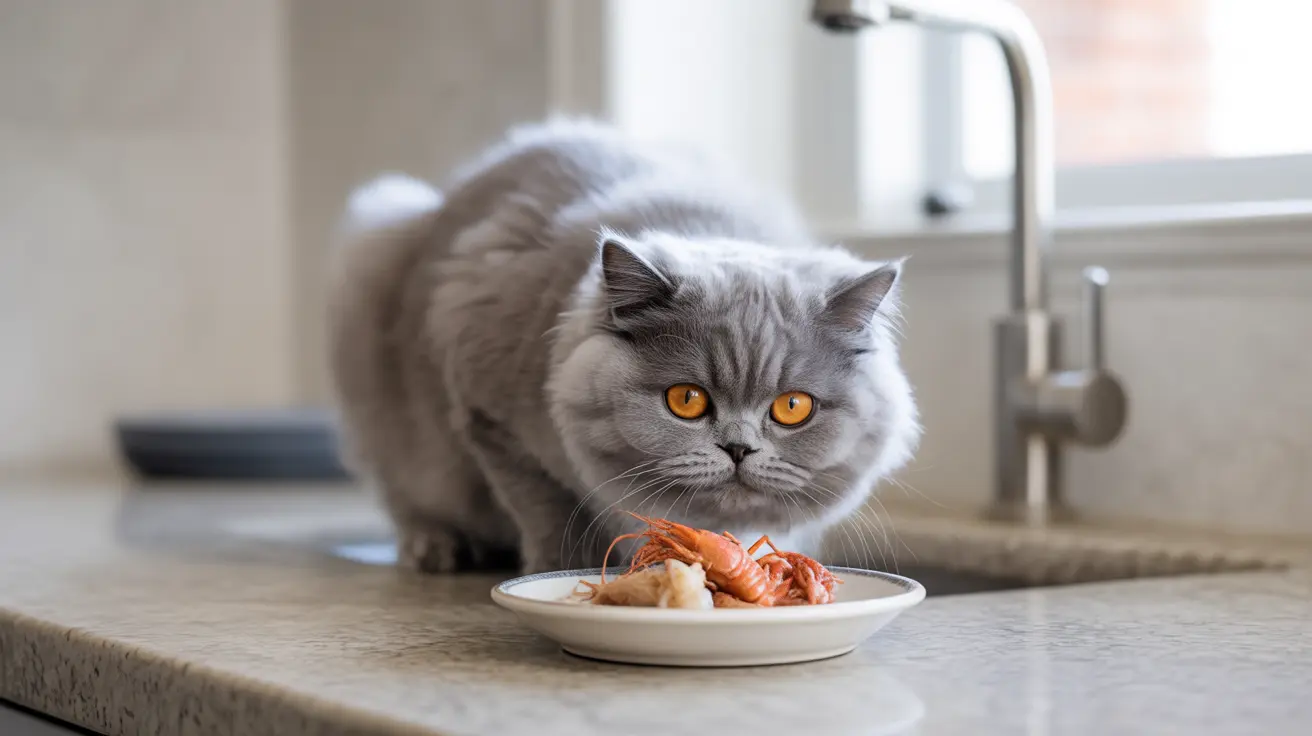Many cat owners wonder about sharing seafood treats with their feline friends, especially when it comes to crawfish. While cats may be naturally drawn to the enticing aroma of these crustaceans, it's crucial to understand both the benefits and risks before offering crawfish to your pet.
In this comprehensive guide, we'll explore everything you need to know about feeding crawfish to cats, including nutritional value, potential hazards, and proper preparation methods to ensure your pet's safety.
Nutritional Benefits of Crawfish for Cats
Crawfish can offer some nutritional benefits when served properly and in moderation. These crustaceans are rich in protein, containing approximately 14 grams per 3-ounce serving. They also provide essential minerals such as zinc, selenium, and copper, which support immune function.
Additionally, crawfish contains vitamin B12 and omega-3 fatty acids, which can contribute to overall feline health. However, these nutrients are already present in quality commercial cat food, making crawfish unnecessary for a balanced diet.
Potential Risks and Health Concerns
Sodium and Cholesterol Content
One significant concern with feeding crawfish to cats is its high sodium and cholesterol content. A single serving contains 49-170mg of sodium and 115-126mg of cholesterol, which can be problematic for cats with existing health conditions such as kidney or heart disease.
Physical Hazards
Crawfish shells pose a serious choking risk and can cause dangerous digestive blockages. The sharp edges of shells can also damage your cat's digestive tract if ingested.
Safe Preparation Guidelines
Proper Cooking and Serving
If you decide to offer crawfish to your cat, follow these essential preparation steps:
- Thoroughly cook the crawfish without seasonings
- Remove all shells, including tiny fragments
- Serve only the plain meat
- Offer a small amount (no more than a teaspoon)
- Never add butter, salt, or seasonings
When to Avoid Crawfish
Some cats should never be given crawfish, including:
- Cats with kidney or heart conditions
- Those with known seafood allergies
- Cats with sensitive digestive systems
- Pets on special diets
Safer Alternatives to Crawfish
Instead of crawfish, consider these safer protein options for your cat:
- Plain, cooked chicken
- Cooked turkey
- Commercial cat treats
- Veterinarian-approved protein supplements
Frequently Asked Questions
Can cats safely eat cooked crawfish, and how often can it be given as a treat?
Cats can safely eat small amounts of plain, cooked crawfish meat with all shells removed. It should only be offered as an occasional treat, no more than once or twice a month, and in portions smaller than a teaspoon.
What are the health risks of feeding crawfish to cats, especially regarding sodium and cholesterol?
The high sodium and cholesterol content in crawfish can strain your cat's kidneys and cardiovascular system. This is particularly dangerous for cats with existing health conditions, potentially leading to dehydration or worsening heart problems.
How should crawfish be prepared before offering it to a cat to avoid choking or digestive problems?
Crawfish should be thoroughly cooked without seasonings, and all shells must be completely removed. Serve only plain meat at room temperature, ensuring no shell fragments remain that could cause choking or internal injury.
Can feeding crawfish cause allergies or urinary issues in cats?
Yes, cats can develop allergies to seafood, including crawfish. The high mineral content can also contribute to urinary tract issues, particularly in cats prone to such problems. Watch for symptoms like vomiting, diarrhea, or skin irritation.
Are there better seafood or protein alternatives to crawfish for cats?
Plain, cooked chicken or turkey are safer protein alternatives for cats. If you want to offer seafood, commercially prepared cat foods containing fish are typically safer as they're formulated specifically for feline nutrition.
Remember, while crawfish can be safe in small amounts, it's not necessary for your cat's diet. Always consult with your veterinarian before introducing new foods to your cat's diet, especially if your pet has existing health conditions.






